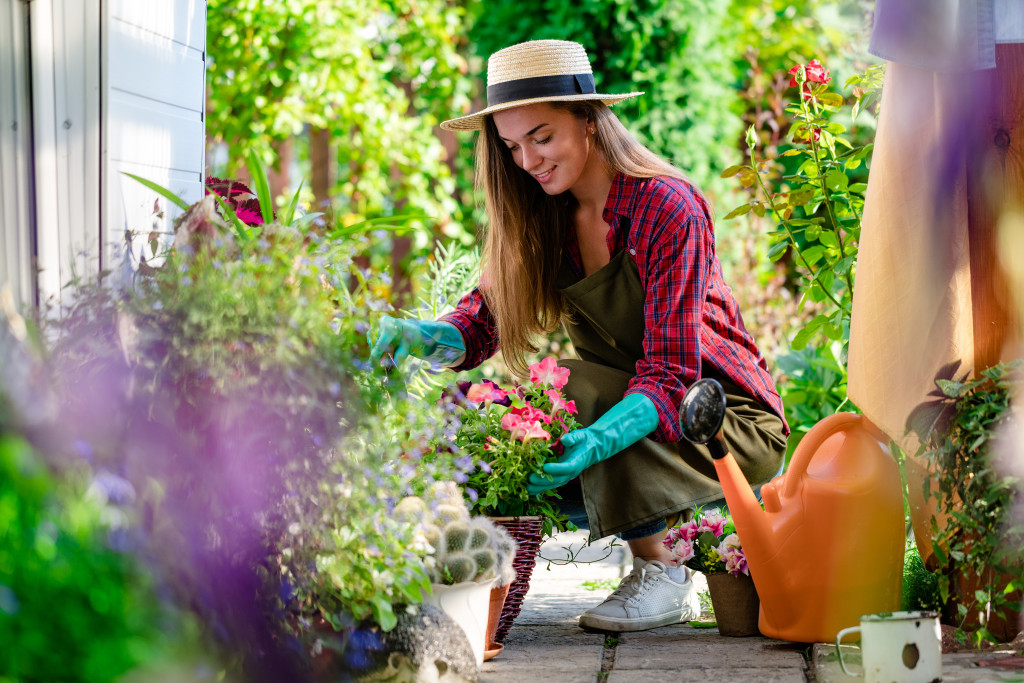Disclaimer: Mladysrecords. This site provides fashion and lifestyle content for informational purposes only.
In these uncertain times, we must find hobbies that we truly enjoy to help us cope with the stress and anxiety that come with the COVID-19 pandemic. One hobby that’s gained popularity over the past year is gardening, with many using their backyards to house different kinds of plants, shrubs, flowers, and even trees. Gardening provides many benefits such as boosting your mood, exposing you to vitamin D, and even lowering the risk of dementia.
While creating a garden is an exciting process, what many people forget about is how important it is to maintain their gardens. Whether you’re a certified green thumb or a complete beginner, here are a few ways you can take care of your garden and keep it looking healthy and beautiful all year round.
Check on Your Plants Regularly
It can be tempting to procrastinate this step, especially when you have low-maintenance plants. However, checking on your plants is as important as watering them regularly. Small changes in your plants could be their way of telling you something. From leaves or flowers drooping to white residue on your plant pots, what seems like something insignificant could mean much more than that.
Proper Watering is Key
Plants need water to survive. However, it’s important to remember that plants require different amounts of water. The quantity of water you give to your plants can affect their growth — underwatering and overwatering your plants can end up with you killing your plant, which no plant parent wants. Too little water can make leaves and flowers dry out and die while too much water can oversaturate the soil, cause leaf spots, and attract root-rotting fungi, which can completely destroy your plants.
Remember to directly water the soil and water regularly according to your garden’s needs.
Keep Gardening Tools Clean
When taking care of your garden you must have the proper tools to do so effectively and efficiently. Cleaning your tools not only benefits you but it benefits your garden as well, as it prevents rust from forming and removes soil and sap that could potentially harm your plants. Clean your tools every time you use them to remove soil, and if you used any tool to deal with a diseased plant, make sure to clean it immediately before using it on a healthy plant.
You can easily clean your garden tools by filling a bucket with nine parts water and one part chlorine bleach, dipping your tools in the mixture, and properly drying them before using them again.
Get Rid of Weeds
Weeds are extremely harmful to plants- not only do they steal the nutrients from nearby plants, but they can also house pests and block your other plants from receiving sunlight. Once you see them growing, it’s important to pull them out and remove them right away before they flower. You can also use chemicals that can prevent weeds from growing or even germinating.
Prune Damaged Limbs
Pruning your plants is also an important part of keeping your plants healthy, as they prevent unwelcome pests and encourage plant growth in a way that allows them to grow in a specific pattern. It’s also important to remember that when you prune your plants, you need to prune at the right time and only remove the right amount. The perfect time to prune your plants is during their dormant season, and you can check when this is by looking at your area’s growing zones.
Pruning small plants is fairly simple, but for bigger ones, especially trues, these can be dangerous to you, your garden, and the people around you. If you don’t get rid of dead or diseased branches, this can not only be bad for its health, but it can physically endanger someone should the branch suddenly fall off the tree. If you have no experience pruning bigger plants and trees, then it might be best to leave it to professionals who can help you prune or trim your trees.
Don’t Overcrowd
Overcrowding is never good, whether you’re referring to people or plants. In the case of plants, however, overcrowded plants can experience effects similar to when weeds start to appear in a garden. The plants will compete for more water, sunlight, and other nutrients to survive. When the plants do not get these necessary nutrients, they can become weak and are more prone to getting diseases.
Remember to place your plants with enough gaps in between them to allow each plant proper airflow.
Gardens aren’t easy to maintain. But both old and new garden enthusiasts can agree that the health benefits plants and gardens provide heavily outweigh the hassle of taking care of them. As long as you stay consistent, treat your plants with love, and follow these tips, your garden is sure to become an oasis of relaxation and beauty for you and your household.

